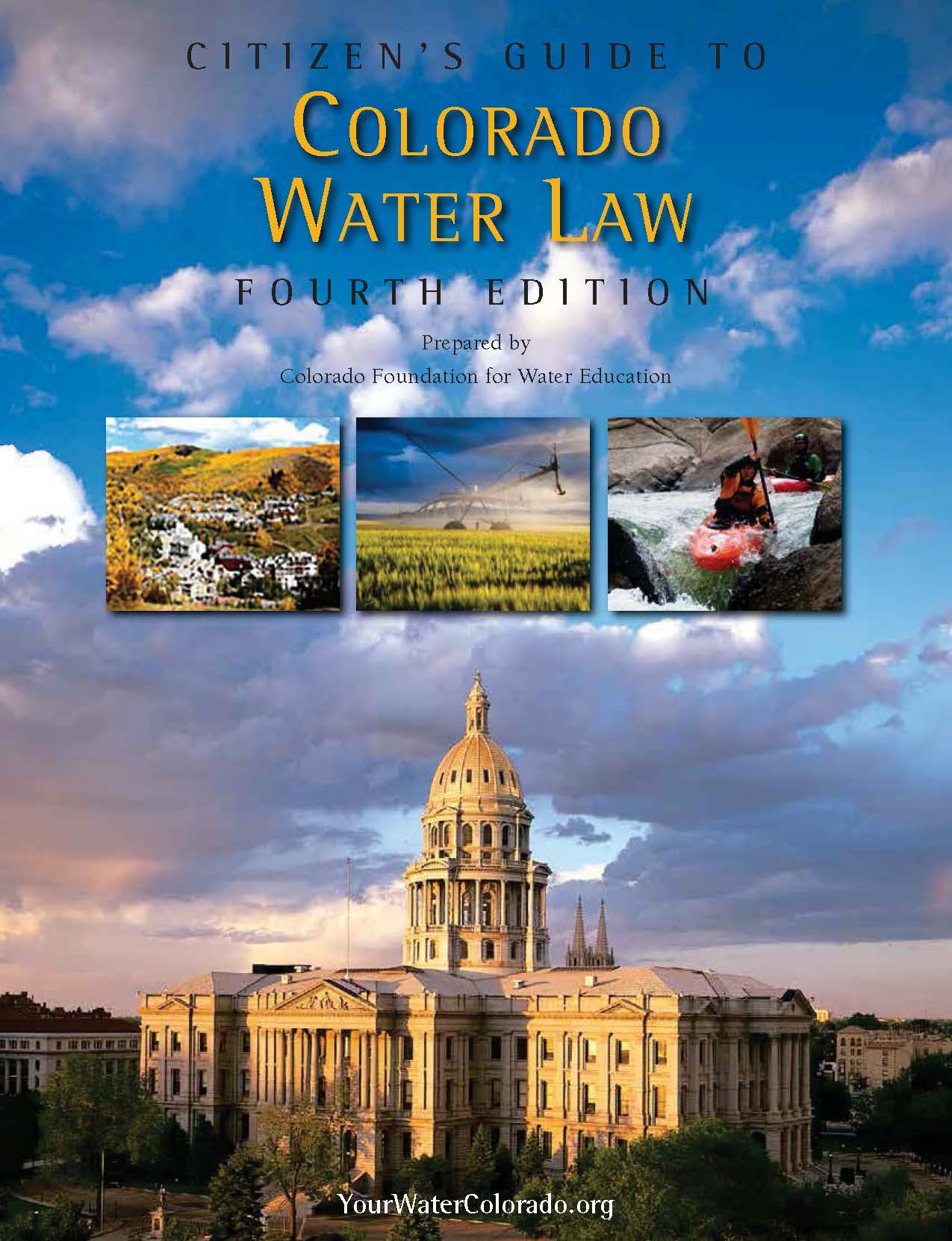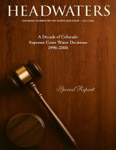Water Law
Water Law
Colorado’s water belongs to the people of Colorado. Colorado water law establishes a system of rights to divide this public resource for beneficial use.
Water is the key to life, but it is a limited resource. Different users including industries, cities, farmers, recreationists, and environmentalists, all compete for Colorado’s water. Population growth, changing needs, and climate change affect the amount of water available. Since demands change, water law must be flexible. Colorado’s water law has evolved with the customs and values of its people.
Read more in the Citizen's Guide to Colorado Water Law
Click the Fluent Water Facts below to learn more about Colorado water law.
First in Time, First in Right
Colorado’s dry climate creates many challenges for water users, who frequently move water vast distances from its source to its area of use. These challenges made the water law framework common in the eastern United States, riparian law, impractical. Riparian law, says that only those with land adjoining the stream have a right to use the stream water.
Colorado adopted a different system-- prior appropriation. This system is commonly summed up as “first in time, first in right.” This means that those with senior (older) rights can begin to use water before junior (newer) rights holders in times of water shortages.
The Basis of Colorado’s Water Law
Colorado needed a clear system of law to identify and protect water rights, with reliable administration and enforcement of those rights, and the flexibility to allow those rights to be transferred, sold, or exchanged. The Colorado Doctrine is a set of laws governing water use and land ownership, adopted by the people of Colorado starting in the 1860s. Its four major principles are:
- All surface and groundwater in Colorado is a public resource for beneficial use by public agencies, private persons, and entities;
- A water right is a right to use a portion of the public’s water resources;
- Water rights owners may build facilities on the lands of others to divert, extract, or move water from a stream or aquifer to its place of use; and,
- Water rights owners may use streams and aquifers for the transportation and storage of water.
CFWE Law Resources
Guide to Colorado Water Law explores the basics of Colorado water law--learn how it has developed and how it is applied today. This, CFWE's most popular Citizen's Guide, was authored by Colorado Supreme Court Justice, and CFWE Board Vice President, Gregory Hobbs. Take a look or purchase a copy.
Law Supplement Headwaters magazine a special edition of Headwaters that provides an in-depth look at Colorado water law. Browse the magazine to supplement our Citizen's Guide and your knowledge. View it here.
Administration Headwaters magazine read how enforcing the law in our water-scarce state can get tricky and meet the men and women who allocate Colorado's most precious resource. Browse the issue here.



